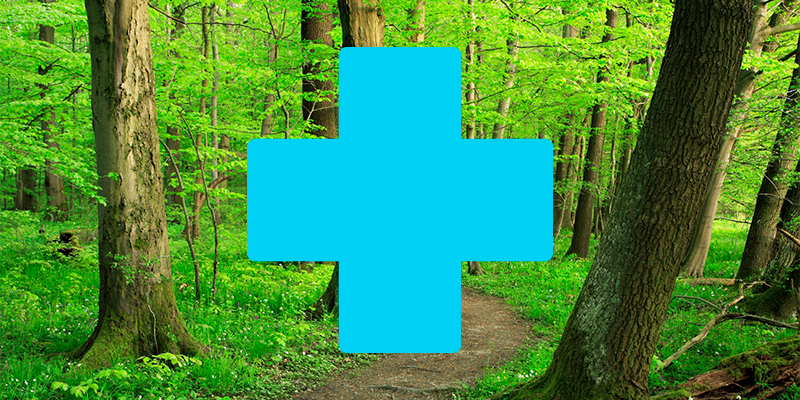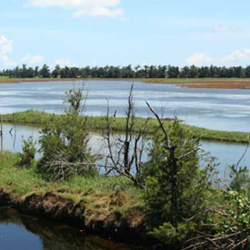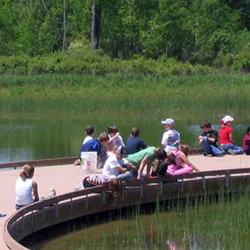Professional Practice
Children: Nature Deficit Disorder

A phrase first coined by author Richard Louv, children are increasingly disconnected from their natural environment and spending more and more time inside. Coincidently, instances of ADD and ADHD are increasing. Even for children not diagnosed with attention deficits, the fact remains that a disconnection from the natural world results in difficulties in concentration, a diminished use of the senses, and higher rates of mental illness among our children. According to Louv, attention span, creativity, and the desire to explore that result from free play in a natural environment are all reduced in children that spend the vast majority of their time inside.
How Nature Helps
Getting children outside and providing them with time and places for free play in natural environments will increase attentions spans, creative thought, and the desire to learn through exploration, making for healthier and happier kids.
Nature can even serve as a therapy for troubled kids. Recently, “wilderness therapy” has emerged as an alternative treatment for behavioral and psychological problems in adolescents and teens. These programs organize group expeditions, up to eight weeks in length, where teens and adult leaders venture into wilderness areas to camp and engage in a number of survival tasks. As a result, one study found that “wilderness therapy” was an effective treatment for teens suffering from attention deficit disorder, alcohol and drug addiction, depression, and other behavioral problems. Afterward, patients showed higher levels of confidence, better organizational and leadership skills, and exhibited fewer problematic behaviors.
 ASLA 2011 Professional Analysis and Planning Honor Award, Aogu Wetland Forest Park Master Plan, Taiwan, National Sun Yat-sen University / Image credit: National Sun Yat-sen University, Yannlin Photo, Forestry Bureau
ASLA 2011 Professional Analysis and Planning Honor Award, Aogu Wetland Forest Park Master Plan, Taiwan, National Sun Yat-sen University / Image credit: National Sun Yat-sen University, Yannlin Photo, Forestry Bureau
 ASLA 2008 Professional General Design Honor Award, James Clarkson Environmental Discovery Center, White Lake Township, Michigan, MSI Design / Image Credit: MSI, Ellen Puckett Photography, Justin Maconochie Photography
ASLA 2008 Professional General Design Honor Award, James Clarkson Environmental Discovery Center, White Lake Township, Michigan, MSI Design / Image Credit: MSI, Ellen Puckett Photography, Justin Maconochie PhotographyResearch
"Changes in Children's Nature-based Experiences Near home: From Spontaneous Play to Adult-Controlled, Planned and Organized Activities," Children’s Geographies, 2009
“Last Child in the Woods: Saving Our Children for Nature-Deficit Disorder,”
Richard Louv, 2008
“How Wilderness Therapy Works: An Examination of the Wilderness Therapy Process to Treat Adolescents with Behavioral Problems and Addictions,” USDA Forest Service, 2000
Research and White Papers, Children and Nature Network
Resources
Children and Nature
Discover the Forest, U.S. Forest Service
Natural Learning Initiative
“For Forest Kindergarteners, Class is Back to Nature, Rain or Shine” The New York Times, 2009
Organizations
The Student Conservation Association
Outdoor Nation
National Environmental Education Foundation
Role of the Landscape Architect
Landscape architects can create opportunities for children to safely explore and play. Especially important are nature parks and learning centers, which allow children the opportunity to discover the plants and animals living there and notice the natural rhythms of their environment.
Case Studies
James Clarkson Environmental Discovery Center, White Lake Township, Michigan, MSI Design
Charlotte Brody Discovery Garden at Sarah P. Duke Gardens, Duke University, Durham, North Carolina, Jesse Turner Landscape Architect
Augo Forest Wetland Park, Taiwan, National Sun Yat-sen University
<< General Health
Obesity >>